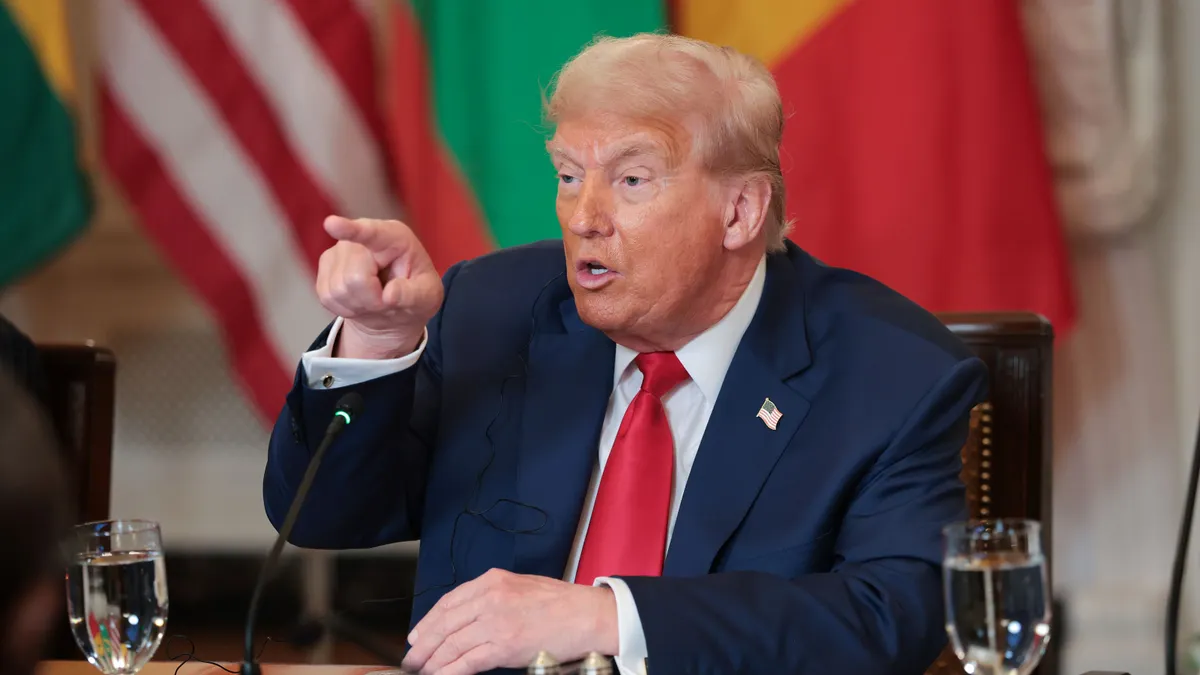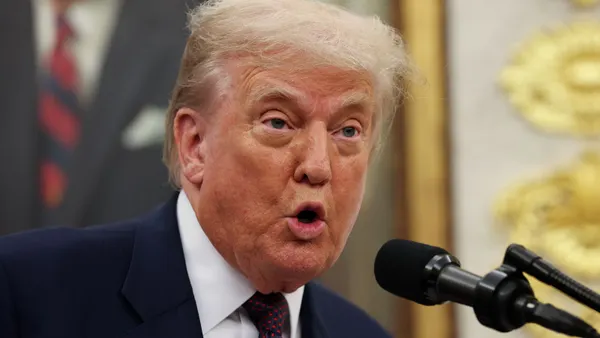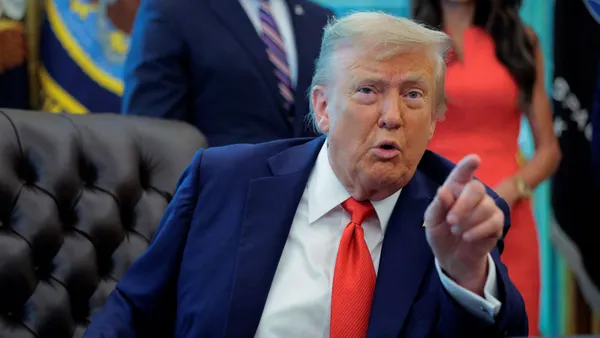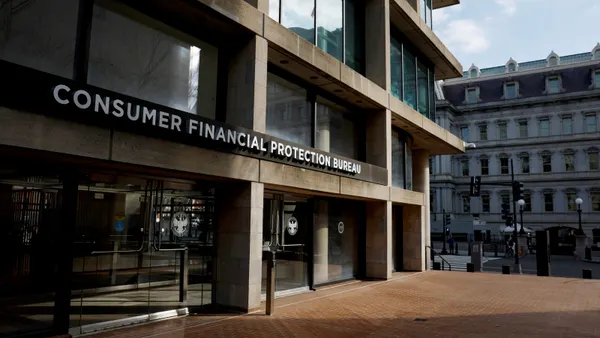Six months after President Donald Trump accused Bank of America of debanking conservatives, he issued an executive order Thursday directing federal regulators to remove guidance that enables “politicized or unlawful” debanking.
Trump specifically called on regulators to remove reputational risk “and other equivalent concepts” from their materials, and to evaluate the financial institutions under their jurisdiction to find policies that lead to unlawful debanking. Those regulators should then “take appropriate remedial action,” including levying fines and issuing consent decrees, he wrote.
The order also calls on regulators to review supervisory and complaint data for instances of debanking based on religion and refer those cases to Attorney General Pam Bondi.
Debanking has been a topical rallying cry for the Trump administration since January. It’s a word often tied to cryptocurrency, because of the Biden administration’s allegedly coordinated effort to debank crypto firms via Operation Choke Point 2.0. Allegations of debanking are also often tied to political conservatism. The Trump family sued Capital One in March for allegedly debanking their businesses after the Jan. 6, 2021, Capitol riot.
In the executive order, Trump alleged that following the insurrection, some financial institutions engaged in “government-directed surveillance programs” against conservatives.
“Such practices are incompatible with a free society and the principle that the provision of banking services should be based on material, measurable and justifiable risks,” the executive order said.
Despite accusations aimed at certain banks – Trump told CNBC on Thursday that both JPMorgan and Bank of America refused to take his deposits during his first term – bank trade groups showed support for the executive order, which they said “helps ensure all consumers and businesses are treated fairly, a goal the nation's banks share with the Administration.”
“It's in banks’ best interest to take deposits, lend to and support as many customers as possible,” wrote the American Bankers Association, Bank Policy Institute, Consumer Bankers Association and Financial Services Forum in a joint letter.
“Unfortunately, regulatory overreach, supervisory discretion, and a maze of obscure rules have stood in the way as the EO makes clear,” the groups wrote. “We thank the Administration for its efforts to protect access to banking and rein in runaway regulations and look forward to working with the White House, Congress and the agencies to create a national standard that advances these goals.”
The Federal Deposit Insurance Corp. and Office of the Comptroller of the Currency each began scrubbing reputational risk from their respective guidance in March. The Federal Reserve followed suit in June.
Comptroller Jonathan Gould said Thursday the OCC would soon propose a rule removing the same references from its regulations, and will commence a review to assess if and how the banks it supervises have engaged in unlawful debanking.
“The OCC is exploring additional steps to ensure politicized or unlawful debanking is never repeated,” he wrote.
But Graham Steele, former assistant secretary for financial institutions at the Treasury Department, said in an emailed statement that Thursday’s executive order “does exactly what it accuses others of doing: politicizing financial regulation.”
“It is not about ensuring equal access to the banking system for all,” Steele said, who was appointed under President Joe Biden. “The Trump administration clearly wants to ensure certain industries — such as fossil fuels, gun manufacturers and the crypto industry — have financial access and protection while others — including communities affected by climate change and traditionally marginalized racial and gender groups — do not.”














